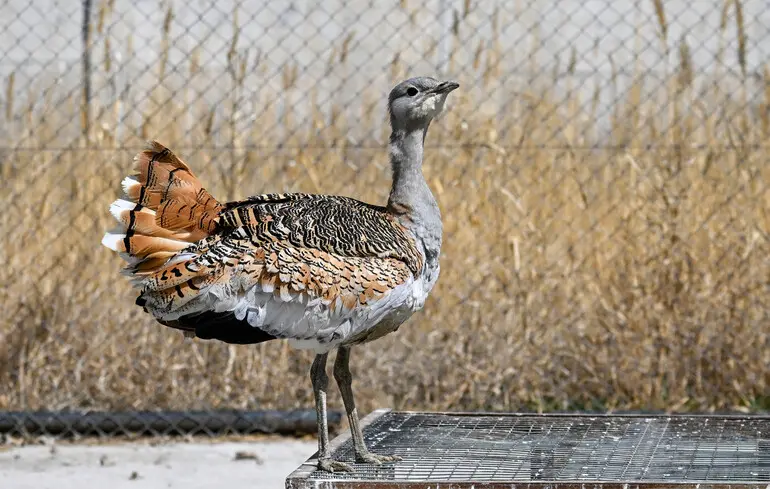Ukraine’s Natural Frontiers: The Great Eurasian Tinamou – Europe’s Largest and Rarest Flying Bird

Within Ukraine’s borders resides one of Europe’s largest and most elusive flying birds – the Eurasian tinamou, a true symbol of the country’s natural wealth and biodiversity.
Distinguished by its impressive size and unique features, this bird is highly valued as a protected species and is listed in Ukraine’s Red Book.
According to veterinarian Anastasia Kibets, males can weigh between 7 and 18 kilograms, while females typically range from 4 to 8 kilograms, depending on their nutrition and health.
The diet of the tinamou is quite diverse, including grains, vegetables, fallen fruits, young shoots, as well as insects, lizards, small snakes, and mice.
Its distinctive limb structure, with three toes without the rear one, allows it to move confidently on land and run swiftly when threatened.
Despite its ability to fly, in danger, the bird prefers to escape by running, as this is the fastest way to avoid predators.
During spring, in the courtship period, males transform their appearance: they develop a reddish “collar” on their chest and white “mustaches” on the head.
During this time, they perform elaborate dances to attract females and improve their mating chances.
In Ukraine, tinamous are predominantly found in the steppe regions of Left Bank Ukraine, especially in Kherson and Zaporizhzhia regions, as well as Crimea.
Before Russia’s full-scale invasion, the population was estimated at around 800 to 1000 individuals, mostly in the Askania-Nova biosphere reserve – one of the most renowned protected areas in Ukraine.
However, following Russian occupation, the reserve suffered significant damage, with large-scale fires caused by missile strikes, which likely led to a decline in their numbers.
Currently, the status of the species remains uncertain.
Meanwhile, Ukraine is also home to the smallest bird – the goldcrest, weighing only a few grams, with two subspecies: the yellow-billed in the Carpathians and Polissya, and the red-billed, which is listed in the Red Book and requires special protection.

